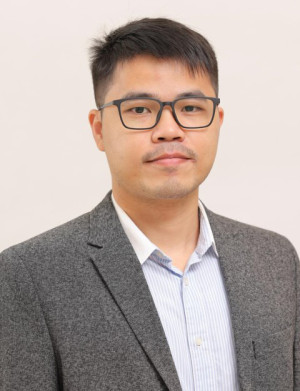Your Brain, Your Say!
Not all brains are created equal. Our brains differ considerably as they are shaped by both nature and nurture. Ideally, every individual’s developmental trajectory should be carefully tailored to match one’s specific profile to achieve the greatest potential in a person’s life. However, in many social-functional sectors, we are treated equally with specificity completely overlooked through highly standardised procedures and routines. To some degree, this is understandably due to limited resources and underdeveloped functional systems in various sectors. But we should have the optimism that human society is striving towards a common prosperity in which every individual is carefully looked after. In fact, we have seen rapid development under the concept of individual specificity, such as personalised medicine and individualised education.
Dr Ouyang Guang, Assistant Professor in the Academic Unit of Human Communication, Development, and Information Sciences at the Faculty of Education, is bringing the concept of individual specificity into the research domain of cognitive neuroscience, particularly in studying the basic cognitive and learning processes using neuroscience technologies.
As mentioned, conventional neural cognitive research fails to explicitly tackle the issue of individual specificity. It is typical that a standard cognitive task is designed and administered to all subjects with a fixed set of parameters, which remains fixed throughout the entire experiment. Such research paradigm neglects individual specificity of the brain, not to mention the use of a fixed setting suffers a very limited ecological validity – we human beings rarely encounter a cognitive task of totally passive reception without interacting with what is shown to us.
Dr Ouyang, together with collaborators Dr Romy Lorenz, who is associated with both University of Cambridge and Stanford University, and Dr Joseph Dien from University of Maryland, developed a system that can extract individually specific neural profiles in real time. It can also use the extracted neural profile to inform the task settings adapted to the individual, thus achieving a real-time interactive task between the participant and the environment.
Specifically, Dr Ouyang’s team successfully demonstrated that the brain shows maximum excitability when the rate of stimulus presentation is set at an optimal value, which differs from person to person. Most importantly, the optimal presentation rate can be identified by Bayesian optimisation only in a few minutes via an online experimental session. This system enables simulating real-world brain-environment interaction, thus boosting the generalisability of basic cognitive research to the real world with individual specificity being fully exploited during the interaction.
The work is recently published in the Journal of Neural Engineering. Ouyang, Guang, Joseph Dien, and Romy Lorenz. “Handling EEG artifacts and searching individually optimal experimental parameter in real time: a system development and demonstration.” Journal of Neural Engineering 19.1 (2022): 016016.
This is the first proof-of-principal work in the field that demonstrated individual specific neural profiles can be extracted online to inform and facilitate adjustment of experiment settings, thus truly creating a neuroadaptive research paradigm based on electroencephalogram (EEG). Researchers in the cognitive neuroscience communities can make use of or further develop this tool to cope with difficult research questions that involve interactive learning in complex scenarios. In this way, a new research venue of neuroadaptive research based on EEG can be formed, bringing cognitive neuroscience research closer to real-life and naturalistic settings. Following this proof-of-principal work, Dr Ouyang is planning to use this system to explore the possibility of identifying the individually specific optimal parameters associated with a person’s learning preference, brain excitability, and memory-related performance.

Dr Ouyang incorporates the concept of individual specificity into neuroadaptive cognitive neuroscience research to make it more pragmatic and natural.

a close-looped system for studying the brain’s real-time interactive behaviour with the environment



